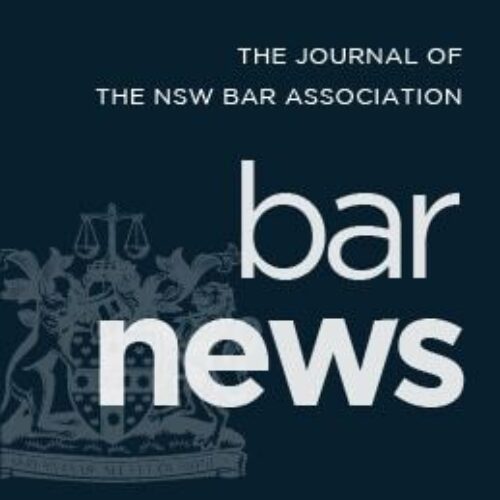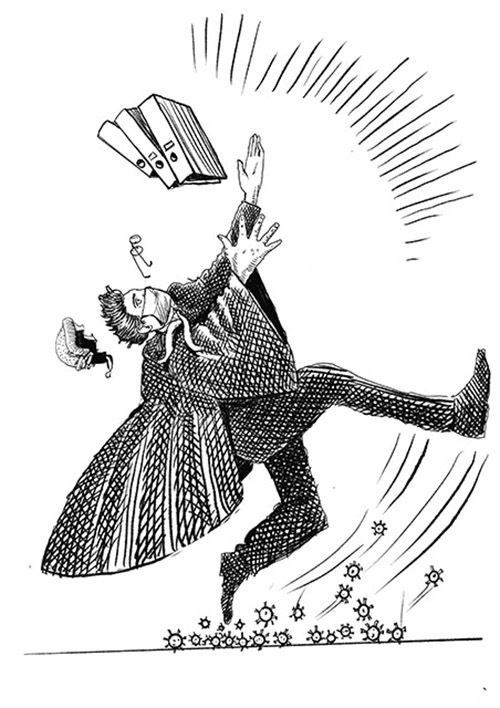
As we enter our third year of the pandemic, I confess to a certain irritability, and not only with the fact that this situation is ongoing and that I am sick of appearing by AVL (although that is also true). Rather, my frustration lies with the ongoing use of COVID as a general excuse for any failure.
Do you have a civil case in which you need to vary orders to file documents that have not been filed on time, or at all? Are you seeking an adjournment because, really, your case is not ready? Does your client want another crack at getting bail after previously being refused? Have you a statement of claim that has been filed, but no supporting evidence?
If you have been instructed to do any of the above over the last two years, it is likely that you will have been told to use the COVID-19 pandemic as their reason for making the request. I have been given instructions along these lines, with mixed success when submitting them. Unfortunately, this blanket excuse for things not being done persists. The fact is, much of the time, COVID is used as an excuse for shirking responsibility. I am not talking about specific instances where COVID may have legitimately had an impact. For example, an affidavit cannot be completed because someone has been hospitalised with COVID, or public health orders prevent a certain action taking place. These are not my gripe: it is the use of COVID as some sort of catch-all justification for not getting things done.
On one occasion last year, I received the dreaded early-morning phone call requesting someone to appear (my fault for answering, I suppose). I was asked to go down to the Local Court to seek an adjournment of a hearing listed the following week (a tough ask at the best of times). The reason was that a supporting affidavit could not be completed because of the lockdown that had recently commenced in NSW. There were no further instructions. Realising pretty much straight away that this was what one might refer to as ‘a suicide mission’, I asked for the matter to be stood in the list, letting the court know that I had only been briefed in it for about 45 minutes. Needless to say, the application for adjournment was not granted. I did, however, manage to obtain a later filing deadline for some evidence to be put on. I am not sure what happened after my brief involvement in the matter but can only hope that COVID did not prevent that deadline from being met as well.

The prospects of an adjournment being granted in a civil matter because of a general COVID issue have probably all but evaporated. The high-profile defamation case involving Ben Roberts-Smith was adjourned early in the pandemic (unfortunately, as it would have provided some much-needed distraction during that time) due to specific reasons, including that there were key witnesses who should give their evidence in person, and that there were issues involving national security that were not suitable to be communicated over Microsoft Teams.1 Other applications in the Federal Court for an adjournment were not granted, with the court citing, inter alia, the adequacy of available technologies and the desirability of the courts continuing to operate,2 and it seems unlikely that a request to vacate a trial would be successful if made today on the general grounds of the pandemic.
Other jurisdictions, however, simply do not have the technology in place to be running all trials remotely: the Children’s Court, for example, can barely run a list by AVL given the size of the lists in that jurisdiction and the resultant number of users logging on at once.
There is perhaps a major exception. In the criminal jurisdiction, if your client is seeking bail, COVID is generally on your side and understandably so: conditions in custody are more onerous than they would otherwise be, with inmates spending more time in solitary confinement and visits to prisons being highly restricted, making it difficult for inmates to prepare for trial. Lengthy delays in matters being brought to trial mean inmates are likely to spend a lengthy period on remand. This is one area where COVID has serious, real-world impacts that criminal courts are alive to.3 Justice Hamill of the Supreme Court has stated that the pandemic, and its impact on prisoners, should not be treated as ‘the new normal’.4 However, raising COVID alone will not be sufficient for bail to be granted and submissions should include it as one of many factors.
There will continue to be unforeseeable effects from the pandemic, and these are likely to continue even as life gets back to something resembling normality. We will all need to continue to be flexible and adaptable, but hopefully pleading COVID as a general issue is, like the worst of the pandemic, behind us. BN
ENDNOTES
1 Roberts-Smith v Fairfax Media Publications Pty Limited (No 4) [2020] FCA 486.
2 Discussed in Australian Securities and Investments Commission v GetSwift Limited [2020] FCA 504 and Capic v Ford Motor Company of Australia Limited [2020] FCA 486.
3 See, for example, Simpson v R [2021] NSWCCA 264 at [5], [97]; Director of Public Prosecutions (Cth) v Saadieh [2021] NSWSC 1186 at [48]; Rakielbakhour v DPP [2020] NSWSC 323 at [13]–[16].
4 Saadieh at [47].
An anonymous Barrister’s perspective - ADVOCATUS
